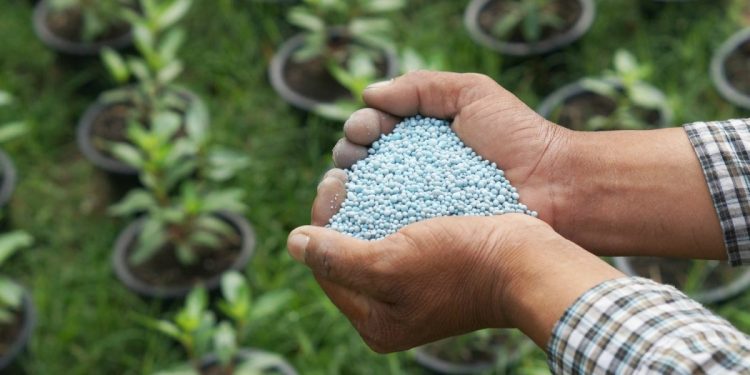Azerbaijani farmers today have the opportunity to purchase nitrogen fertilizer at a price three times lower than the market price, which will help avoid inflation for agricultural products.
BAKU, June 7 – Sputnik. A number of countries-producers of mineral fertilizers against the backdrop of a sharp rise in prices on world markets have introduced restrictions on the export of this type of product.
Thus, in the Russian Federation, one of the main suppliers of mineral fertilizers to Azerbaijan, there is a quota for the export of nitrogen and complex fertilizers from July 1 to December 31, 2022. And on June 6, the government commission on the agro-industrial complex and sustainable development of rural areas of the Russian Federation supported the extension of the quota for the export of mineral fertilizers until May 31, 2023.
“Recognize the measures taken by the government of the Russian Federation to curb the rise in prices for mineral fertilizers as effective. Support the extension of the previously taken measures to curb the rise in prices for mineral fertilizers until May 31, 2023,” the press service of Russian Deputy Prime Minister Viktoria Abramchenko said.
First of all, we are talking about measures of customs and tariff regulation, in particular, quotas and restrictions on the export of fertilizers, as well as mechanisms for agreements on the supply of fertilizers within the country.
AR carbamide plant is operating at peak capacity
Since May last year, the SOCAR Carbamide Plant has been at the peak of its production capacity, plant director Khayal Jafarov told Sputnik Azerbaijan.
“We are at the peak of 90-95% of production capacity. We are not reaching 100% according to production principles. This is the optimal mode for today. Last year there were technical problems, and we could not increase production. Since May last year, we have been working steadily at capacities of 90-95%,” Jafarov said.
According to the director of the plant, last year there were certain shutdowns at the plant due to repairs, this is not expected this year, so it is expected that by the end of the year the plant will produce about 500-550 thousand tons of nitrogen fertilizer, while in last year, production amounted to about 350 thousand tons.
Azerbaijani farmer buys carbamide 3 times cheaper
Jafarov noted that at the moment the plant fully satisfies the country’s demand for nitrogen fertilizer.
“If last year about 48 thousand tons of urea were sold, today sales on the domestic market have already exceeded more than 100 thousand tons. That is, in the five months of this year, twice as much product was sold on the domestic market compared to last year “, – said the director of the plant.
He noted that the reason for the sharp increase in consumption in the domestic market of Azerbaijan was high prices in foreign markets.
“For example, a ton of carbamide now costs about $600-700 on the Black Sea, while the price has not changed on the domestic market of Azerbaijan – 420 manats (about $250),” Jafarov said, adding that now Azerbaijani farmers have the opportunity to buy carbamide three times lower cheaper than market prices. In turn, stable and low prices for carbamide will help to avoid inflation for agricultural products in the country, because expensive fertilizer implies an increase in prices for agricultural products.
The interlocutor of the agency noted that the carbamide plant was built within the framework of the country’s food security and is now fully fulfilling its mission – it provides 100% of Azerbaijan’s need for nitrogen fertilizers.
“The growth in demand in the domestic market was facilitated by the growth of sowing and the expansion of agricultural activities in the liberated territories. The expected figure for urea consumption during the year may be at the level of 200 thousand tons,” he shared.
As for the repayment of the loan received for the construction of the plant, Jafarov noted that a third of the loan (166 out of 500 million euros) has already been repaid.
“The next tranche to repay the loan in the amount of 32 million euros is expected in two weeks. So, more than 1/3 of the loan has already been returned, and the loan will be fully repaid by 2027,” Jafarov said, adding that both prices and the plant’s production capacity allow you to repay the debt on time.







